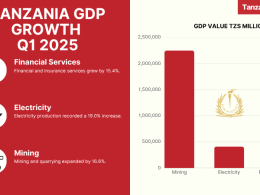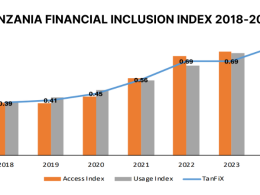The Tanzania Revenue Authority (TRA) recently released the country’s tax revenues in H2 2016, showing an increase of 12.7% to TZS7.27tn, compared to TZS6.44tn in H2 2015.
TRA notes that the increase is due to various efforts made to increase tax collection efficiency and to improve the systems for collecting revenues.
On a month by month basis, the biggest increase in tax revenues in H2 2016 was seen in August, when tax revenues rose by 25.01% to TZS1.15tn.
Tanzania Tax System
The Tanzanian tax system relies on the contribution of VAT, income tax, import duties, and excise taxes.
Under the Finance Act of 2016, Tanzania introduced an 18% VAT on tourism services (tourist guiding, game driving, water safaris, animal or bird watching, park fees and ground transport services) and most financial services.
Tom Philibert, Tax Partner for Tanzania at Ernst & Young (EY), commented to TanzaniaInvest: “Unfortunately the tax system of Tanzania has somewhat worsened in the past years. Due to severe pressure on public finance, the Government is reacting with several fiscal measures. The complexity and lack of clarity of certain new tax rules and the tremendous focus on tax collection are often indicated by clients as factors creating concerns for the business and investment climate.”
“Although the need for public funds is clear, there is a limit to how much tax companies can withstand, and if this limit is breached, it might disrupt business and prevent taxpayers of making additional investments,” he added.











